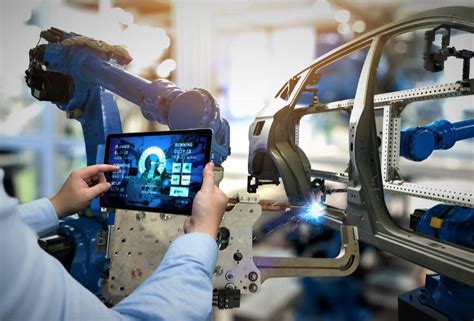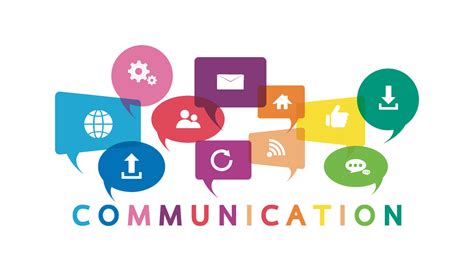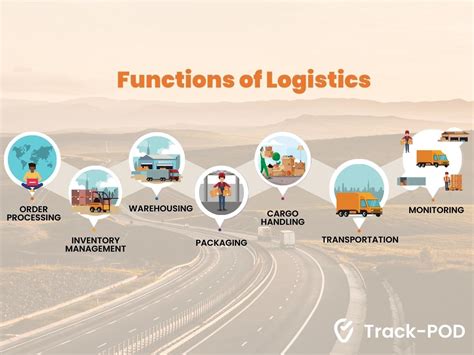Breaking News


Popular News


Stay ahead of the curve with our blog post on 6G technology’s potential impact across healthcare, manufacturing, communication, entertainment, transportation, and logistics. Get the insights you need.Introduction:
As technology continues to advance at a rapid pace, the next generation of mobile communication, 6G technology, is on the horizon. This innovative technology promises to revolutionize the way we live, work, and interact across various industries. In this blog post, we will explore the potential impact of 6G technology on healthcare, manufacturing, communication and entertainment, as well as its role in transportation and logistics. From enabling real-time monitoring and diagnostics in healthcare to transforming manufacturing processes and enhancing communication and entertainment experiences, 6G technology has the potential to significantly improve efficiency, productivity, and user experiences across industries. Join us as we delve into the exciting possibilities of 6G technology and how it is set to transform technology use across various sectors in the near future.
Contents

In the ever-evolving world of technology, the development of 6G technology is on the horizon. Many people are familiar with 3G and 4G networks, but what exactly is 6G technology? 6G refers to the sixth generation of wireless technology, which is expected to surpass the capabilities of 5G networks. It is projected to offer faster speeds, lower latency, and higher capacity, ultimately revolutionizing the way we connect and communicate.
One potential feature of 6G technology is the ability to support holographic communication, which could have far-reaching implications for various industries. Additionally, 6G is expected to utilize advanced artificial intelligence systems to optimize network performance and enhance user experiences. While 5G is still in the process of being rolled out, the development of 6G technology represents the next frontier of innovation in the telecommunications industry.
As with any new technology, there are both opportunities and challenges associated with the implementation of 6G networks. The potential impact on healthcare, manufacturing processes, communication and entertainment, as well as transportation and logistics, is vast. It is important for stakeholders in these industries to closely monitor the development of 6G technology and consider how it can be leveraged to drive positive change and progress.

Exploring 6G Applications: Transforming Technology Use Across Industries
The Potential Impact on Healthcare of 6G technology is immense, and it has the potential to revolutionize the healthcare industry in ways that were previously unimaginable. With faster and more reliable connectivity, 6G can enable real-time monitoring of patients’ health, facilitate remote surgeries, and improve the efficiency of medical record management. This can lead to better and more personalized patient care, as healthcare professionals can have access to real-time data and make prompt decisions based on accurate information.
Furthermore, the deployment of 6G technology in healthcare can also lead to advancements in medical research and development. With the ability to process and analyze vast amounts of data at unprecedented speeds, researchers can gain deeper insights into complex diseases, leading to the development of more effective treatments and medicines. Additionally, 6G can improve telemedicine and remote patient monitoring, making healthcare more accessible to individuals in remote or underserved areas.
In summary, the potential impact of 6G on healthcare is nothing short of transformative. From improving patient care and treatment outcomes to enabling groundbreaking research and expanding access to healthcare services, 6G technology has the potential to significantly shape the future of healthcare in a positive and impactful way.
| Potential Impact on Healthcare |
|---|
| Real-time patient monitoring |
| Remote surgeries |
| Efficient medical record management |
| Advancements in medical research and development |
| Enhanced telemedicine and remote patient monitoring |

With the introduction of 6G technology, the manufacturing industry is poised to undergo a significant transformation. The potential impact of 6G on manufacturing processes is immense, revolutionizing the way products are designed, developed, and produced. The ultra-fast data speeds and low latency offered by 6G will enable to the industry to embrace advanced automation, artificial intelligence, and robotics in a way that was previously not possible.
6G technology will also play a crucial role in improving supply chain management and inventory control in the manufacturing sector. With the help of IoT devices and advanced sensors, manufacturers will be able to track inventory in real-time, reducing waste and ensuring that production is aligned with demand. This level of data visibility and control has the potential to revolutionize how products are manufactured and delivered to consumers.
In addition, 6G technology will empower manufacturers to implement smart factories, where every aspect of the production process is connected and optimized. Through the use of connected machines and AI-powered analytics, manufacturers can achieve higher levels of efficiency, flexibility, and customization in their production processes. This will ultimately lead to improved quality, reduced production costs, and faster time-to-market for new products.

6G technology is the next generation of wireless communication, expected to deliver unprecedented speed, reliability, and connectivity. As we look ahead to the future of communication and entertainment, 6G is poised to bring about monumental changes in how we interact and consume media. With the potential for download speeds of up to 1 terabyte per second, 6G will enable seamless streaming of high-definition content, virtual reality experiences, and immersive gaming.
Furthermore, 6G’s ultra-low latency will transform the way we communicate, allowing for real-time, high-resolution video calls, and virtual meetings. The integration of advanced 6G technology into the field of entertainment will open up new possibilities for interactive experiences, live events, and content creation, revolutionizing the way we engage with digital media.
In addition, the deployment of 6G networks will greatly enhance connectivity in remote and rural areas, ensuring that individuals worldwide have access to high-speed internet and communication services. The potential impact of 6G on communication and entertainment is substantial, promising to create an era of connectivity and media consumption like never before.

6G technology is poised to revolutionize the way transportation and logistics industries operate, with the potential to drastically improve efficiency, safety, and sustainability. With its ultra-high-speed, low-latency connectivity, 6G will enable real-time data exchange between vehicles, infrastructure, and logistics networks, leading to autonomous transportation, predictive maintenance, and optimized route planning.
Furthermore, the integration of 6G in transportation and logistics will enhance supply chain management, enabling seamless tracking and monitoring of goods from production to delivery. This will not only reduce transit times and costs but also minimize environmental impact through better resource allocation and emissions reduction.
In addition to these advancements, the 6G network will also facilitate secure and reliable communication between autonomous vehicles, allowing for coordinated traffic flow and accident prevention. This will ultimately lead to a safer and more efficient transportation system, benefiting both businesses and consumers alike.
| Benefits of 6G in Transportation and Logistics |
|---|
|

What is 6G technology?
6G technology is the upcoming generation of wireless communication, expected to succeed 5G. It is anticipated to offer faster speeds, lower latency, and more reliable connections.
How will 6G transform technology use across industries?
6G is expected to revolutionize various industries by enabling advancements in areas such as healthcare, transportation, manufacturing, entertainment, and more. It may lead to innovations like remote surgery, autonomous vehicles, smart factories, and immersive media experiences.
What are some potential 6G applications in healthcare?
In healthcare, 6G could support remote patient monitoring, virtual consultations, and even enable complex procedures to be performed through robotic surgery systems, bridging the gap between patients and healthcare providers.
How might 6G impact transportation and mobility?
6G could enable advancements in autonomous vehicles, traffic management systems, and real-time vehicle-to-vehicle communication, leading to safer and more efficient transportation systems.
What role could 6G play in the manufacturing sector?
In manufacturing, 6G could facilitate the implementation of smart factories, where machines and processes are interconnected and optimized for improved productivity, predictive maintenance, and quality control.
Will 6G bring changes to the entertainment industry?
6G may bring about new forms of immersive entertainment experiences, such as augmented and virtual reality applications with higher levels of realism and interactivity, as well as ultra-high-definition streaming.
When can we expect 6G technology to be widely available?
6G technology is still in the research and development phase, and its widespread availability is not expected until the 2030s. However, discussions and explorations of potential use cases are already underway.